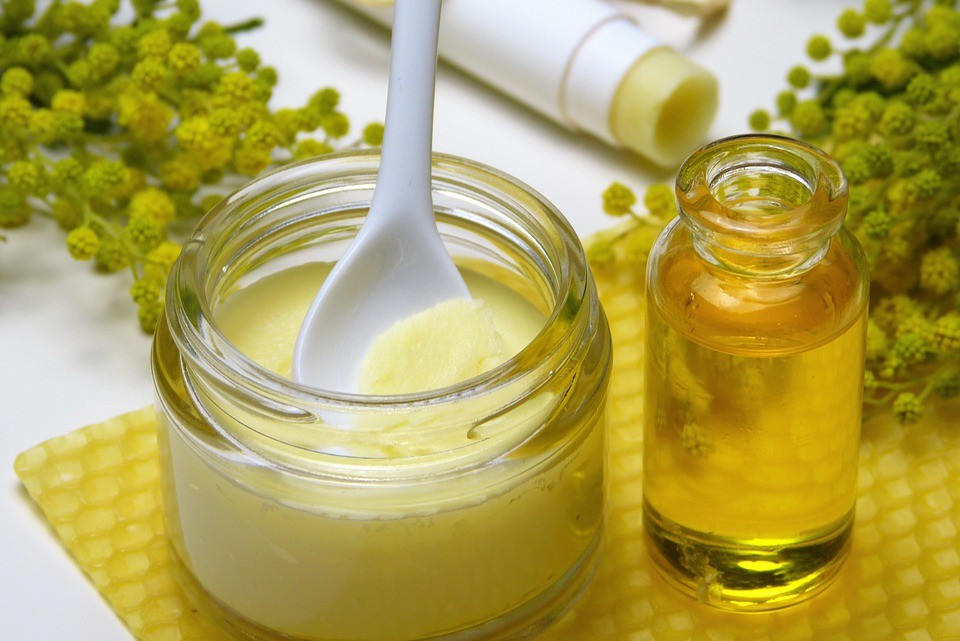It’s perfectly normal to feel hesitant to use shea butter on your face, especially when your skin type is oily. Because why would you want to add more oil to your skin, right? But what if we tell you that shea butter is natural skincare for oily skin and perfectly suits this kind of skin type?
How Does Shea Butter Work For Oily Skin?
Oil does not necessarily have to be bad for oily or combination skin. While some oils can be problematic, others help to reduce oily skin. How? Oils can be used to control oily skin. They dissolve the excess oil and stale sebum deep in the skin’s pores, which helps get rid of the excess oily skin. Some oils balance sebum secretion and help prevent oily skin.
Although it might be hard to believe, fat is exactly the same. You need healthy fat (such as olive oil, avocados, etc.) to burn that extra fat. It’s a matter of fat to lose fat and oil for oil to burn it. It’s the same concept as like attracts like.
You need to be able to identify which oils are safe to use and which oils are good for oily skin. A comedogenic score is a rating on a scale between 0 and 5. It indicates how likely oil will clog pores. A rating of 5 signifies that it is extremely comedogenic. Products with comedogenic ratings of 0-2 are best for normal skin. However, products with an oily rating of zero should be avoided if your skin is oily. These are oils and butter that have a comedogenic rating below 0:
- Argan oil
- Hemp seed oil
- Mango butter
- Sunflower oil
- Shea butter
You can see that shea butter has a comedogenic rate of zero. This means that it won’t clog up your pores and is very safe for oily skin.
It may be surprising to know that shea butter, a plant butter (which is thicker than rosehip oil) has no comedogenic ratings. It’s not surprising, shea butter being a plant butter has no comedogenic rating. Shea butter sinks immediately into the skin, leaving it feeling light and smooth.
Many people wonder whether shea butter is good for oily skin. However, it’s essential to know what shea butter is and how it works. This moisturizer is a great choice and is loaded with antioxidants. It also helps your skin heal anti-inflammatory conditions and boost collagen production. The benefits of shea butter are many, but you should consider your skin type before buying it.
Can I Use Shea Butter On My Face? Is Shea Butter For Oily Skin?
Using shea butter on face is fine because shea butter is oily, it doesn’t clog pores and even treats acne. Its high fatty acid content helps moisturize your skin and absorb excess sebum. It can be applied directly to your skin or mixed with other creams for an even more effective treatment. The cream will be absorbed into your skin quickly, allowing you to get rid of the oil without clogging your pores.
While shea butter is excellent for oily skin, it’s essential to experiment with it on a small patch of skin before applying it to your face. The benefits of shea butter can range from soothing eczema to reducing facial lines. Before using it on your face, you should apply a small amount to a hand. This way, you can determine if it suits your skin before committing to a full-blown treatment.
Is Shea Butter A Good Substitute For A Moisturizer?
Although it may be hard to find a good moisturizer for oily skin, shea butter is an excellent choice. The rich composition of shea butter will help your facial skin stay healthy and radiant. It will not cause breakouts and balance out your skin’s oil production. Its natural non-comedogenic rating makes it an excellent choice for oily skin. It doesn’t have a heavy feeling and sinks into your face quickly.
Above all, If you have oily skin, shea butter is an excellent option. It contains a natural oil derived from the shea nut. Its high fatty content and non-comedogenic properties make it a perfect choice for people with oily skin. The benefits of shea butter for your body include the ability to control acne and promote healing. When used on the face, shea butter is an excellent moisturizer for all skin types.
Is Shea Butter Good For Acne?
In addition to moisturizing your skin, shea butter can also help prevent breakouts and prevent wrinkles. Shea butter is an excellent moisturizer and is ideal for treating dry skin. Its high concentration of antioxidants can prevent acne and help control aging. Shea butter can be used to moisturize the cuticles and improve skin elasticity.

